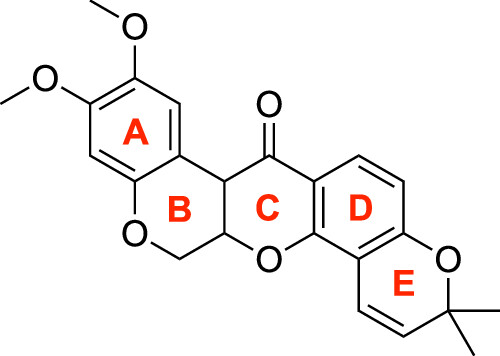Ground-breaking innovation: UP scientists modify pesticide-used compound into promising anticancer breakthrough
By Sonny Daanoy
Brilliant scientists from the University of the Philippines – Diliman College of Science (UPD-CS) have made a potentially ground-breaking discovery that could aid in treating colon, lung, and breast cancer.

By modifying the compound "deguelin" (a derivative of rotenone) into a novel class of compounds, researchers have seen promising results, making it a safer and more effective anticancer treatment.
However, there are concerns about the application of the said discovery in humans, as this compound was originally used in the production of pesticides and fish poison.
Meanwhile, to address this concern, Science Research Specialists Dr. John Alfon Francisco and Dr. Monissa Paderes from the UPD-CS Institute of Chemistry (UPD-CS IC) addressed the potential danger by altering the structure of deguelin.
The modified variants displayed improved characteristics compared to the initial compound.
Initial experiments conducted on human cancer cell cultures demonstrated decreased negative impacts.
Thus, this led Dr. Paderes and colleagues to pursue additional investigations into the safety of these altered compounds.
"We were amused to find that some compounds have improved anticancer properties than its parent compound, deguelin, with some even surpassing the effectiveness of the commercially available anticancer drug doxorubicin," Francisco said.
Due to this alteration, chemists have generated multiple variations of the compound.
For instance, the "6a" version surpassed doxorubicin (a treatment for various types of cancers) in effectively treating colon cancer, while versions "3a" and "8e" demonstrated exceptional efficacy in addressing lung and breast cancer, respectively.
The altered versions the scientists have developed provide a more straightforward and cost-effective means of production compared to those formulated in prior studies.
"The simplicity of the structures, as well as the straightforward synthesis of these compounds, add to the novelty of this study," Paderes explained.
Moreover, scientists engineered the modified versions by truncating a section of deguelin called the BCE ring.
As a result, it became a new version of the deoxybenzoin compound, which is renowned for its antibacterial and antioxidant properties.
Furthermore, UPD-CS emphasized that the research is still in the early stages despite its ground-breaking potential.
"The goal would be to advance these compounds toward clinical trials and potential development as novel anticancer therapeutics," Paderes said.
Suppose the said research shows positive results in animal trials. In that case, UPD-CS will proceed to clinical trials, where the compounds will be evaluated on humans with colon, lung, or breast cancer.
Success in these trials may lead to a review and approval by the Food and Drug Administration (FDA) for the deployment of the compounds as cancer treatments.